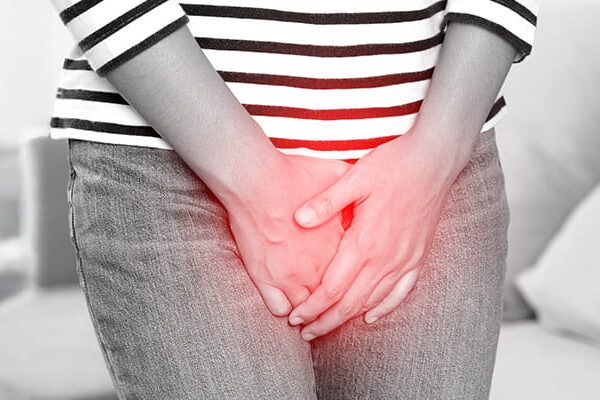Sleep apnea isn’t just about loud snoring; it’s a serious medical condition that causes repeated interruptions in breathing while sleeping. These pauses, known as apneas, can last from a few seconds to minutes and occur multiple times an hour. The consequences? Extreme fatigue, cognitive decline, and an increased risk of life-threatening diseases like heart disease and diabetes.
Introduction
Bladder discomfort can arise from various underlying conditions, some more obvious than others. A lesser known, yet surprisingly common trigger is constipation.
Understanding how gut health affects the bladder can offer new insights into managing discomfort and improving quality of life.
What is Constipation?
Constipation is a digestive condition characterized by infrequent, difficult, or painful bowel movements. According to the National Institute of Diabetes and Digestive and Kidney Diseases (NIDDK), an individual is considered constipated if they have fewer than three bowel movements per week or have stools that are dry, compact, and difficult to eliminate
Symptoms of Constipation
Typical signs include:
- Fewer than three bowel movements per week
- Straining during bowel movements
- Lumpy or hard stools
- A feeling of incomplete evacuation
- Abdominal bloating or discomfort
These symptoms can extend beyond the digestive system, which leads us to the core question: can constipation cause bladder pain?
What’s the Connection Between the Gut and Bladder?
The GI tract and urinary system are anatomically located close to one another in the pelvic area. When the colon becomes backed up with stool, it can put pressure on the bladder and surrounding nerves. This pressure can lead to urinary symptoms and discomfort, including pain in the lower abdomen and pelvis.
The gut and bladder also share neurological pathways. When constipation triggers nerve signals, the bladder may interpret them as urgency or pain. This overlap helps explain why the question “can constipation cause bladder pain” is not only valid but clinically relevant.
Could Constipation Really Trigger Bladder Pain?
Yes. Several studies confirm that constipation can cause bladder pain. The buildup of stool in the colon or rectum can exert pressure on the bladder, causing pain, urgency, and even incomplete voiding. In some cases, patients report a burning sensation when urinating or dull pain that feels like a UTI, but testing shows no infection.
A review emphasized the impact of rectal distension on bladder function. This reinforces the idea that constipation can cause bladder pain is a question with evidence-backed answers.
What Other Symptoms Should You Look Out For?
Beyond bladder pain, constipation may lead to:
- Urinary urgency
- Incomplete bladder emptying
- Nocturia (frequent urination at night)
- Pelvic cramping
- Painful urination (in absence of infection)
If these symptoms appear alongside hard stools or infrequent bowel movements, it strengthens the case that constipation could be causing your bladder symptoms.
Can Constipation Cause Urinary Urgency and Overactive Bladder (OAB)?
The answer is yes. Constipation is a well-documented contributing factor to OAB. The buildup of stool causes the rectum located just behind the bladder to expand. This added pressure can irritate the bladder wall and increase sensitivity, leading to:
- Frequent urination
- Sudden urges to urinate
- Urge incontinence
Pediatric urology literature often highlights this connection in children, but it applies to adults as well. Asking can constipation cause bladder pain often leads to a deeper understanding of overlapping urinary disorders like OAB.
Can Constipation Cause Interstitial Cystitis (IC)?
While constipation doesn’t directly cause IC, it can worsen the symptoms. Interstitial Cystitis (IC), also known as painful bladder syndrome, involves chronic bladder pain and pressure without infection. Studies suggest that bowel dysfunction, including constipation, often coexists with IC. In such cases, constipation acts as an exacerbating factor rather than the root cause.
So, can constipation cause bladder pain in IC patients? Absolutely, it can aggravate an already sensitive bladder.
How to Find Relief from Constipation
Managing constipation can significantly reduce or eliminate bladder-related discomfort. Here are some effective, evidence-based strategies:
- Increase fiber intake: Aim for 25–30 grams of fiber daily (fruits, vegetables, whole grains).
- Stay hydrated: Aim to drink at least eight glasses of water daily.
- Exercise regularly: Physical activity promotes bowel motility.
- Use stool softeners or mild laxatives: If lifestyle changes aren’t enough, consult your doctor about temporary medication.
- Bowel training: Establish regular bowel habits by going at the same time daily.
When constipation is managed well, many people notice a decrease in urinary urgency, frequency, and pain again affirming that can constipation cause bladder pain is more than a myth.
When Should You Seek Medical Advice?
See a healthcare provider if you experience:
- Constipation lasting more than three weeks
- Blood in the stool
- Severe or persistent abdominal or bladder pain
- Unexplained weight loss
- Urinary retention or incontinence
Early intervention can prevent complications and improve overall pelvic health.
Frequently Asked Questions
Can constipation cause bladder pain in children?
Yes, particularly in cases of chronic constipation. The pressure can affect bladder function in kids just as in adults.
Can constipation cause UTI-like symptoms?
Yes. Constipation may mimic UTI symptoms like urgency and burning without an actual infection.
Is there a permanent cure if constipation is causing bladder pain?
Relief is usually achieved through dietary, lifestyle, or medical interventions. Long-term management can reduce recurrence.
Can laxatives help relieve bladder pain caused by constipation?
Yes, but they should be used short-term under medical guidance.
Can constipation cause bladder pain during pregnancy?
Yes. Hormonal changes and pressure from the uterus can slow digestion and cause both constipation and bladder discomfort.
Takeaway
If you’re experiencing both bowel and bladder issues, don’t ignore the possible connection. Understanding can constipation cause bladder pain opens the door to more effective, holistic treatment approaches. By improving bowel health, many individuals also find relief from unexplained urinary discomfort.




